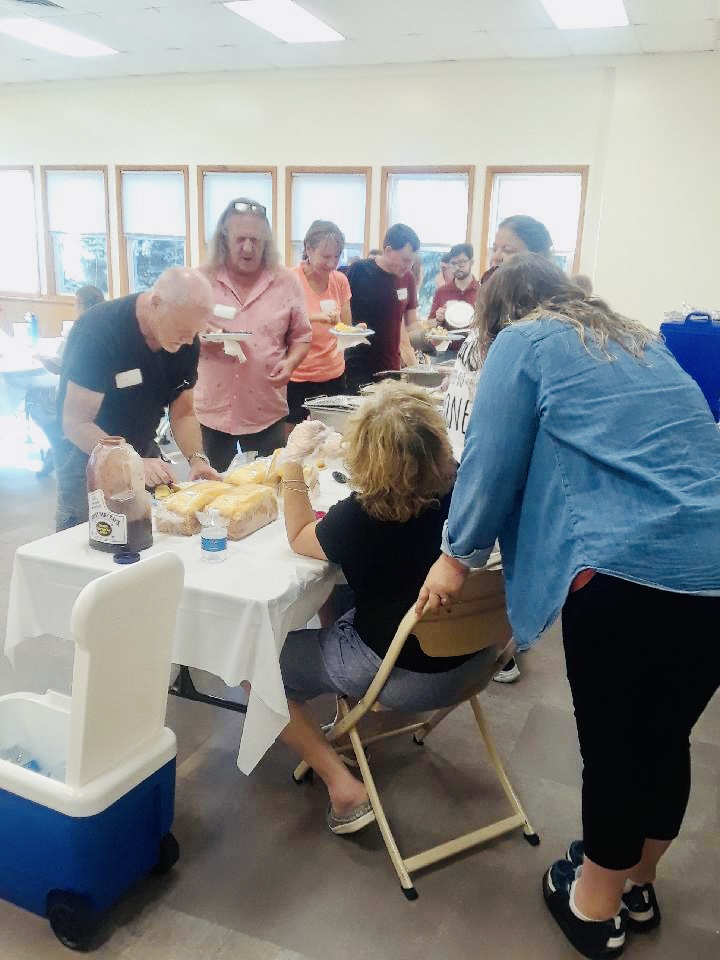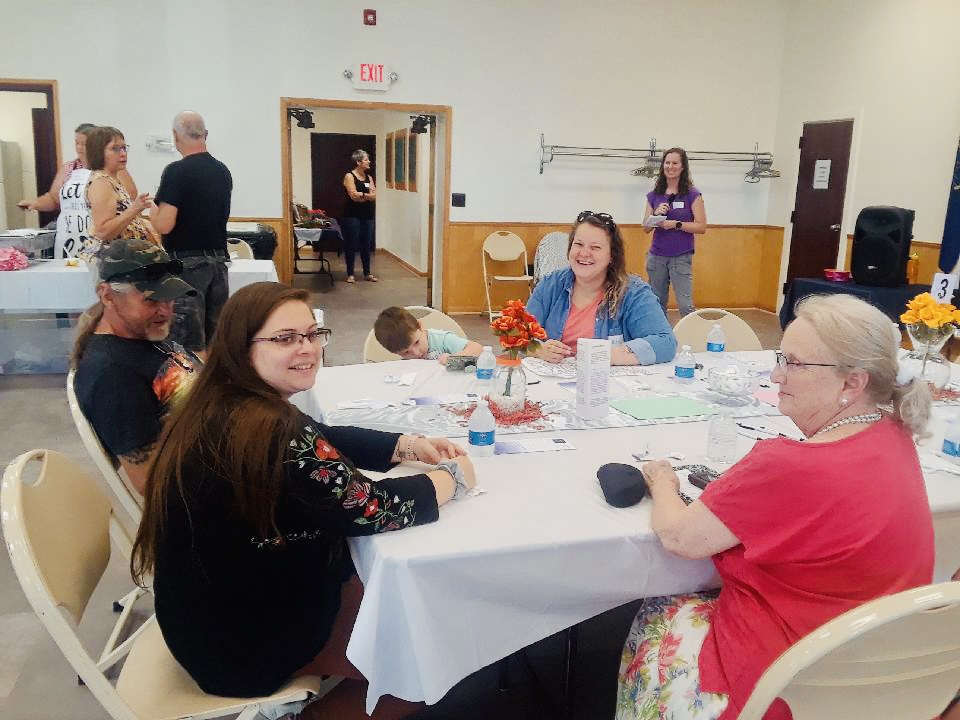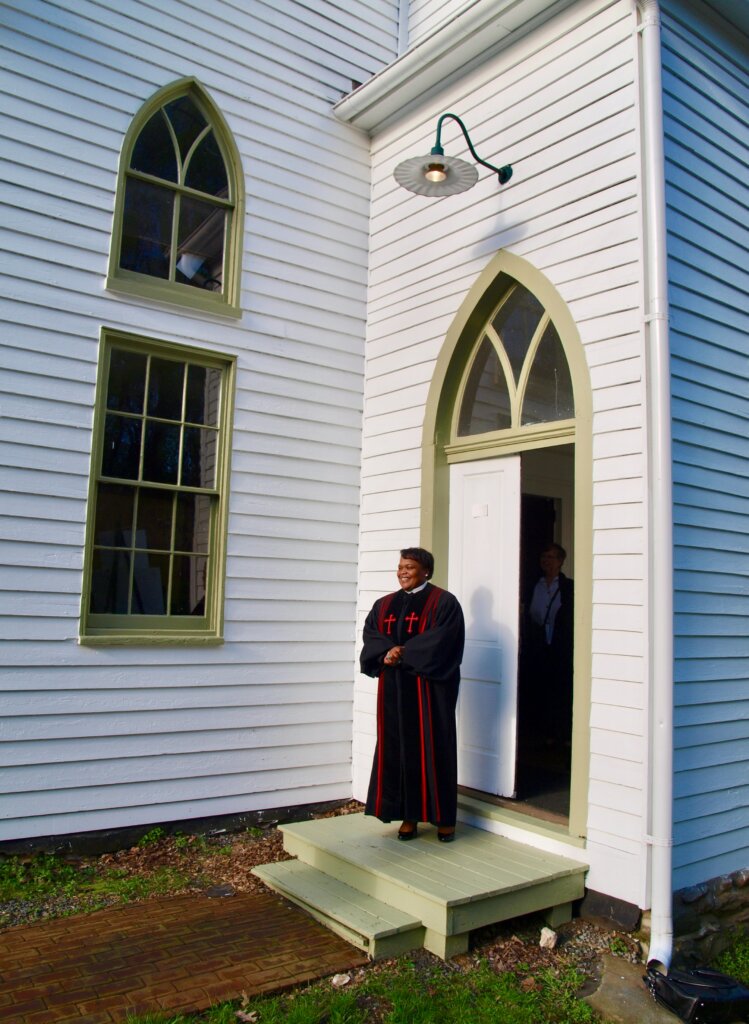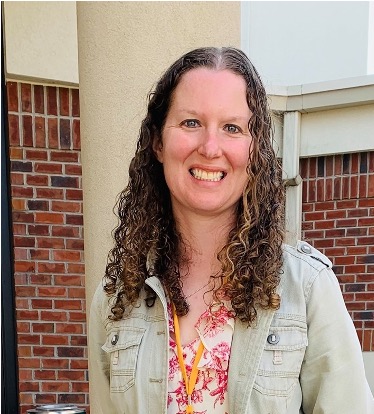Prefer a PDF Version?
Share your email and we’ll send it your way.
Editor’s Note
The Fresh Expressions movement is a Holy Spirit-led approach to cultivating new Christian communities. Inspired by the church of the Apostolic era, it is not limited to any one denomination or tradition, but is “ecclesially flexible.” In this series, Fresh Expressions and the Historical Streams of the Church, readers will hear from Fresh Expressions team members and missional leaders from different streams of the church who will share how this mission model brings out the best of their history, theology, and charism, and how it can bring new life to local congregations.
Our tour guide was always telling us to “look below the surface.” Good words for ministry, for emotions, and for life! But this was a bit different. We were in Israel. There was a lot of neat stuff to “look up” to during such a once in a lifetime opportunity. If you’ve been there, you know what I’m talking about. But our tour guide knew better. Our group was visiting Capernaum as one of the sites on our tour. Much of the town that had been Jesus’ mission-center two thousand years ago has archeological ruins that you can see in squared off areas as you walk along paved walkways.
St. Peter’s Church, built in 1990, is sort of at the center of the entire site; it’s an interesting modern building that currently “hovers” like a spaceship over the site that is allegedly the house of the Apostle Peter. But our guide took us past these views and the crowds that jostled to see them. He led us to an area that we could peer underneath the church structure to see what looked like the outlines of walls and spaces that had been rooms long ago. “Always look below,” he said, as he took his laser pointer and scanned first an upper layer of limestone and then a lower layer of black rocks, outlining two previous church structures that had existed before the current one, as well as quite possibly the original house of Peter.
“The new always has the foundation of the old,” he said. “At the heart of what is built and seems new is always something that has been there all along. You just have to rediscover it. You just have to see it again.”
The Mission of Christ and the Wesleys
While Fresh Expressions of Church may seem new and different to some people, at their core they really lie at the foundation and heart of the original mission of Christ and the Wesleyan movement. Initially started by the Wesley brothers as a reforming discipling and evangelistic movement within the Church of England, Wesleyanism went on to sweep across North America. Today, it is carried on by various denominations who share its distinctives of prevenient grace, sanctification, free will, personal and social holiness, and mobilization for mission and service in the world. These and other features correspond with the values of the Fresh Expressions movement.
While some may question the validity of starting church in a dog park or in a community center around dinner tables or among the chaos of a group of dads hiking with their kids, these structures might actually point us back to the foundation of theology, discipleship, and mission established and built upon John and Charles Wesley, Sarah Crosby, Phineas Bresee, Jarena Lee, Orange Scott, B.T. Roberts, Catherine and William Booth, among others. In a sense, the bedrock of Fresh Expressions as forms of church that are designed to reach our changing culture is the same bedrock that is expressed in the theology, discipleship, and mission of what it means to be distinctively Wesleyan.
Starting Fresh Expressions is a bit like “looking below the surface” of archeological ruins on top of which other expressions of church were formed over the centuries to connect with the people of their time. It can also be a means of rediscovering and re-embodying the Wesleyan heart for today’s Wesleyans, Nazarenes, Free Methodists, United Methodists, AME’s, Salvation Army, and many others. Fresh Expressions both revives the existing Church at the same time it expands it—much like John Wesley’s ministry.
Three Distinctives of Wesley Fresh Expressions
But what is that bedrock? What is the distinctive core of Fresh Expressions of Church in the Wesleyan tradition? Let’s look at three core elements and how they are expressed as we start new forms of church for our changing world.
1. Embodying Wesleyan Theology
While John Wesley was not a systematic theologian, his theology was organized around the Ordo Salutis, or order of salvation, in a way that was highly practical. Just thinking about and debating ideas about God was not worthwhile for Wesley; he had to see it lived out and responded to in real life. The order of salvation demonstrates how God is working in the process of salvation, liberating human beings from sin. In the same way, fresh expressions of church both embrace and create space for the work of God in salvation.

Using my church’s Dinner Church as an example, you can see hallmarks of Wesleyan theology lived out in a fresh expression:
Unlimited atonement, free will, and prevenient grace
All are invited to the Supper Table, our dinner church—and we mean it. We believe that God’s grace and the hope of salvation is available to all, not a preselected group of people, because of Jesus’ atoning work on the cross. This means that there are no exceptions to who is welcome, no one is dismissed for being atheist, and no one is ever rejected because they “have been coming for months but haven’t come to Christ yet.” We also respect God’s give of free will and people’s right to choose whether to be a part of this Dinner Church community or refuse, whether to just come to eat or to engage, whether to explore faith or talk about the Phillies.
Even so, we believe God is already at work in each person’s life—they just don’t know it yet. Even the act of attending a dinner church is a response to God’s prevenient grace, God’s work of drawing them close, the grace the comes before. The seats in the room, the table itself, is a place of prevenient grace; our team wonders “who will fill these seats this week? Will we see John? Will these forks and knives deliver food to mouths but also more to hearts and souls? Will we hear the story of God at work in someone’s life whom we least expect?”
Theologian Thomas Oden writes: “Grace works ahead of us to draw us toward faith, to begin its work in us. Even the first fragile intuition of conviction of sin, the first intimation of our need of God, is the work of preparing, prevenient grace, which draws us gradually toward wishing to please God.” Again and again, we see the room fill up with people who are hungry for more than sloppy joes or a chicken dinner.
Justification, adoption, and assurance
John Wesley said “prevenient grace elicits the first wish to please God, the first dawn of light concerning His will, and the first slight transient conviction of having sinned against Him.” It was time for dessert one Thursday night. I had shared a devotion about God’s love before the meal started, and an older gentleman startled me by tapping me on the shoulder. “Can we talk?” he asked, and motioned to an empty table in the corner of the room. For the next 25 minutes, I listened to his story and answered his questions about the virgin birth and being made right with God. “How does it all work?” he asked. But in this and other fresh expressions of church, we also embody adoption.
Loneliness is real. People who attend or join in may be adopted into the workings of the fresh expression, whether setting up tables or cooking or helping somebody with a ride. They become part of something bigger, even before they may believe. But that adoption goes even deeper when someone comes to faith. It’s hard to describe it, but it becomes a connection between brothers and sisters, like the early Church. We accept, love, and serve each other, broken pieces and all. And for those who may have been hurt by the Church or are coming back to faith, Fresh expressions creates an environment where they can experience assurance of God’s love.
Wesley’s own experience occurred at Aldersgate in 1738 while he listened to a reading of Luther’s preface to the Book of Romans. In his own famous words: “By “the testimony of the Spirit” I mean an inward impression of the soul, whereby the spirit of God immediately and directly witnesses to my spirit that I am a child of God, that Jesus Christ hath loved me, and given himself for me; that all my sins are blotted out, and I, even I, am reconciled to God.” For people who have been turned off by Church or who are spiritually curious, just as in our dinner church, fresh expressions of church allow us to engineer nonthreatening, highly relational environments for the Spirit to work and lead toward salvation.
2. Embodying Wesleyan Discipleship
While it’s true that Fresh Expressions creates spaces and nontraditional communities for people to come to faith who might never come to church, that’s only part of the story. Fresh Expressions also rejuvenates the existing Church itself, just as Wesley did.
Wesley and the early Methodist movement not only shared Christ with people in the towns and fields, as did other reformers like Whitefield; Wesley led to a powerful evangelical revival among those who had been embracing the nominal folk Christianity which infected much of England in the eighteenth century. Wesleyan theologian E. Stanley Jones describes this bidirectional “conversion” of the Wesleyan movement as a vibrant Church who will “not only convert people from the outside to membership but also produce conversion within its own membership. When it cannot do both, it is on its way out.”

Sanctification
Fresh Expressions reaches people but it also sanctifies people. People in the Church who may have been sitting in pews or attending Bible studies for years but then begin serving as pioneers or supporters of a fresh expression of church suddenly may experience growth in their own faith and purpose. They begin to see their learnings take shape and Jesus’ mission come alive around tables and on trails and on the street.
On one of my fresh expressions teams, Betty’s (not her real name) heart broke when she saw that several guys who joined our fresh expression had holey (not holy) shoes, and that moved her to find out their sizes and get new shoes for them that were delivered discreetly.
On another team, several folks who previously had not been involved in serving, now work tirelessly and passionately, even once even commenting to me, their pastor, that “God is really growing my faith through being involved with this. I’m actually praying and reading my Bible each morning too. I don’t know what’s gotten into me!” Wesley’s ministry stressed the need for believers in the Church Body to keep growing and mature in their Christian walk. Committee meetings and endless Bible studies usually don’t do much in the heart department.
Kenneth J. Collins describes “Christian perfection, then, is another term for holy love. It is holy in that believers so marked by this grace are free from the impurities and the drag of sin. It is loving in that believers now love God as their goal of their being, and they love their neighbors as they should.” So many church members have either been cut off from their neighbors or see mission as merely throwing money at organizations that they have missed the sanctifying power of being boots on the ground.
Holiness
Becoming more like Christ through the transformation of the heart lies at the forefront of many of Wesley’s sermons. We are to be holy, different, set apart for God’s purposes. While Fresh Expressions use culture as a touching point, including gathering spaces and activities outside sanctuaries and church classrooms, we do embody a different way of life as followers of Christ. Those touching points diminish the inclination to retreat into holy huddles and Christian bubbles. It’s our hope to be attractive to those who curiously ask “why are y’all so nice? Why are you guys doing this?” Part of holiness is also holistic.
John Wesley was deeply convicted that God cares about our earthly life as well as our heavenly one. To that end, Wesley even wrote a medical text titled Primitive Physick, where he questioned how the doctors of his time (and some of ours) sometimes treated human beings like machines instead of people. Just as many Wesleyan denominations have social causes such as abolition, ministering to the poor, and temperance in their foundations, Fresh Expressions gives avenue to serve the whole person.
Community
Wesley did not believe you could be a Christian by yourself. In his preface to the 1739 hymnal, he wrote: “the gospel of Christ knows of no religion but social; no holiness but social holiness.” In his younger days, he was known as the initiator of small groups: Methodist classes, bands, and societies, each with its distinctive purpose and size. The love, piety, and maturity he had experienced among the Moravians led him to organize such groups, which multiplied and grew by leaps and bounds.
Fresh Expressions of church are not what we usually think of as a church “Small Group Ministry,” which is usually a means of collecting the saints in holy living room huddles. But Fresh Expressions of church hold community at the core—and small communities, at that. An average size of 10-35 people (some dinner churches especially may be larger) allows people to know and be known. That’s where life-on-life transformation happens. That’s where we know names and raise up leaders and helpers and find out Jane has a knack for baking incredible chocolate chip cookies. Sometimes an initial fresh expression social gathering, like my Happy Trails hiking ministry or Rugby Church, will offer a small group meetup before or afterward, preferably around food and drink, to gather those who would like a deeper dive into discipleship and a discussion. Sometimes at my dinner church, we will offer this as a one-on-one or two-on-one discipleship opportunity where those who choose to do so will walk through a booklet or Gospel together. Community is key. Community is Wesleyan. And we are hungry for it in more ways than one.
3. Embodying Wesleyan Mission
The theology and ministry of the Wesleyan movement emerged into both a practical and invitational construct. Wesley’s organization of small groups rejuvenated a meaning of mission and service for many whom religion has become tiresome and meaningless. Wesley’s determination to remain part of the greater Church and reform her from the inside-out did lead to tensions and even disciplinary actions, but even these events turned the Wesley brothers to face even more outward to the people Jesus also loves. Wesley’s preaching was good news to so many on the margins who were destitute, orphaned, and widowed in 18th century England, as well as in the American colonies. Fresh Expressions has mission at its core, that we join God in his mission to our neighborhoods, communities, and world.
A mindset of going out
In the Church of England, preaching always took place inside the sanctuary. It is recorded that John Wesley countered the idea of his Reformed counterpart George Whitefield preaching in the great outdoors. But when the Church of England got angry at Wesley for what he was doing and the message he was sharing, they ordered him to stop preaching. When he refused to comply, he was banned from the parish churches. This is what forced him to begin preaching in fields and various outdoor settings, the “most vile thing” he himself called it. Fast forward to the American frontier and we see it again with the advent of field preaching, early Methodist revivals, and circuit riders, taking the good news to the people. Fresh expressions takes the church Jesus loves closer to the people Jesus loves—most of whom are “out there” in an increasingly secular society. Fresh Expressions transcend geography and culture too, spreading around the world in different places and different ways, often even before their pioneering leaders know how to identify them or what to call these “churches beyond the walls.” Fresh Expressions sees the fields are ripe for harvest, and we have no problem preaching out in them either.
Sending out the laity
Starting in 1739, Wesley began to appoint local lay preachers, largely because he was unable to convince most of his priest colleagues in the Church of England to join the Methodist movement. As an alternative, he recruited and trained gifted and willing unordained people to lead the Methodist societies. He granted them authority to preach, to lead, and to do pastoral work in their towns and villages. Of course the equipping and sending of the people goes back to the priesthood of all believers, but Wesley allowed this work to re-emerge as a foundational piece of the movement. In the same way, the majority of fresh expressions of church are lay-led. Pastors are the permission-givers who send people to be everyday missionaries and pioneers in the strategic locations they find themselves for Kingdom work: offices, neighborhoods, soccer fields, schools, dog parks, tattoo parlors, diners, and porches, just to name a few. The work of Fresh Expressions is not another responsibility for the pastor to “start-the-thing” but rather for the tentacles of the Church, as a people, to reach beyond the inherited church building and structure.
Wesleyans Love Because He First Loved Us
“The new always has the foundation of the old. At the heart of what is built and seems new is always something that has been there all along. You just have to rediscover it. You just have to see it again.” What would it look like for Wesleyan denominations, churches, pastors, and people to partner with the Spirit and fully embrace fresh expressions in their midst? It all starts with listening. Fully listening to God and what God is up to already in our communities and context is a place for all of us—personally and collectively—to begin discerning what God may have us do.
Before we launch forward with a great idea, we must listen together for the need, the desire and the lead. We prayer walk our communities, talk to people, and hear the passions of those God has called together. Pastors and denominational leaders become the permission-givers who identify, allow and equip pioneering leaders, especially among the laity, to begin the work. Pastors, Councils, and Boards validate and encourage the work. The inherited, existing church becomes the launchpad for these missions and mission-leaders and celebrates them as extensions of its own ministry among people they would never reach if they had never ventured forward. We become Kingdom-minded in the process, benefitting the mission of the worldwide Church by contextualizing the gospel.
Under centuries of Church lived out and expressed in our Wesleyan traditions, we see a foundation that can be lived and loved in a new way through fresh expressions of church. “We love because he first loved us” 1 John 4:19 was one of Wesley’s favorite verses, called the “sum of the whole gospel.” It is the gospel which we share but also build. Of course, this means we may have to dismantle some ministries and practices that were built by those before us on that foundation, things that once were greatly successful at sharing the gospel and bringing people to church but don’t any more. But the foundation stays, and lends itself for more building. We have the opportunity to be the harbingers of Jesus’ gospel of grace in new places among new faces—both for people who long for faith and as a revival of our own. Like John and Charles, let us continue to faithfully preach the good news and believe going out to the fields just may not be a bad thing at all.
I believe there has never been a better time to be a Wesleyan. Do you?


